Affiliate links on Android Authority may earn us a commission. Learn more.
Google Photos cloud content will soon appear in Android's Photo Picker, finally
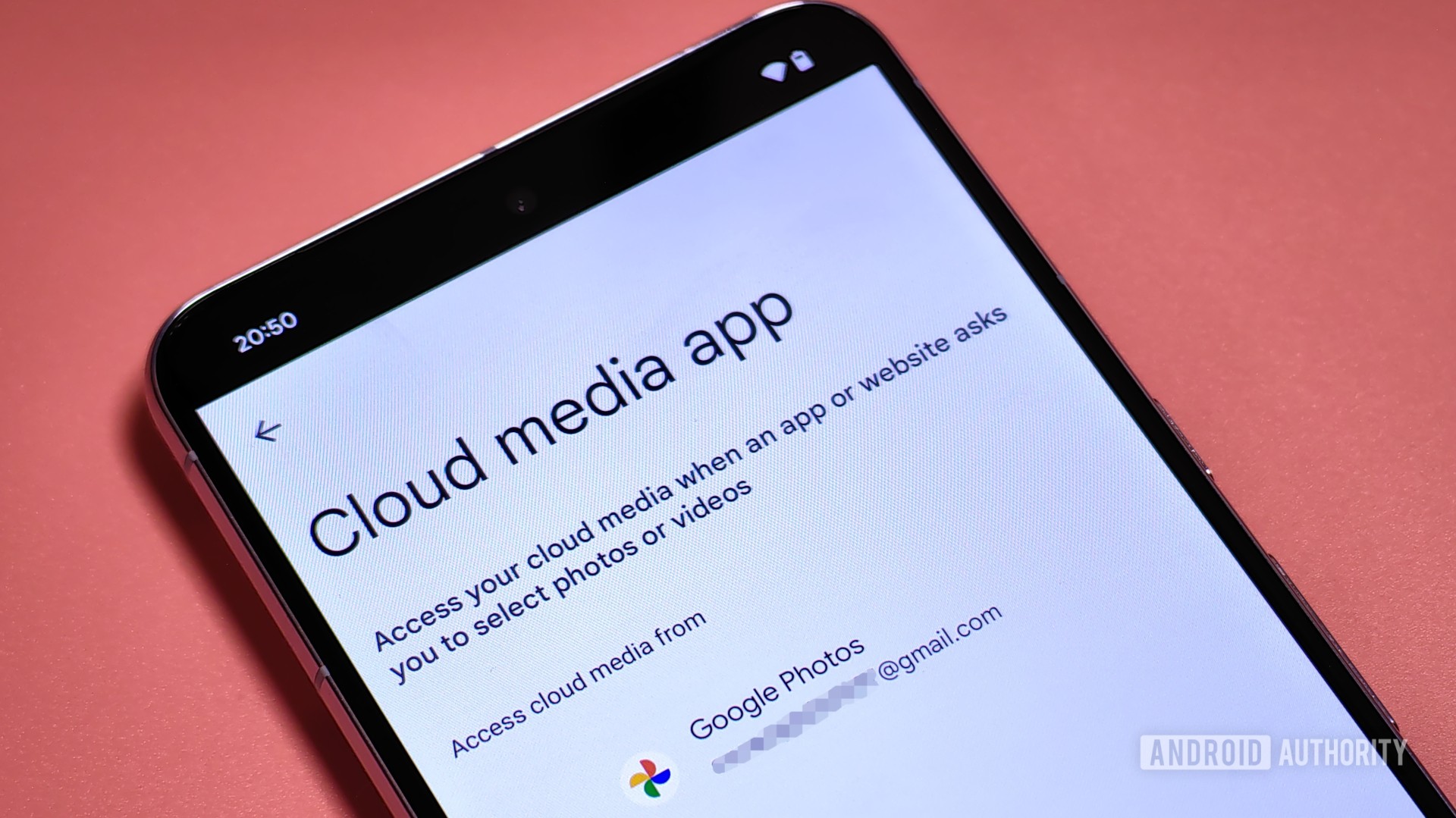
- Android 13 added a new photo picker experience that lets you privately select photos or videos to share with an app.
- Since launch, Android’s photo picker was limited to selecting photos or videos stored locally on the device.
- Google Photos is preparing to integrate with the photo picker so you can share photos or videos stored in the cloud.
One of the key features of last year’s Android 13 release was the new system Photo Picker. The Photo Picker lets you choose exactly which media files to share with an app. In contrast, the custom media pickers that many apps use either get access to all or none of your photos and videos. It would be great if more developers adopted Android’s Photo Picker since it’s more private by design, but there’s a good reason that many haven’t: It’s still missing basic features like letting you select media files stored in the cloud. That could change soon, though, since we’re finally seeing signs that cloud content from apps like Google Photos will appear in Android’s Photo Picker.
If you’re not that familiar with Android’s Photo Picker, I don’t blame you, since there aren’t a lot of apps out there that utilize it right now. The Photo Picker is available natively on all devices running Android 11 and newer as it’s part of an updatable Project Mainline module, but it’s also available on devices running Android versions as far back as Android 4.4 thanks to a backported version provided by Google Play Services. Here’s what the Photo Picker currently looks like if you were to find an app that invokes it:
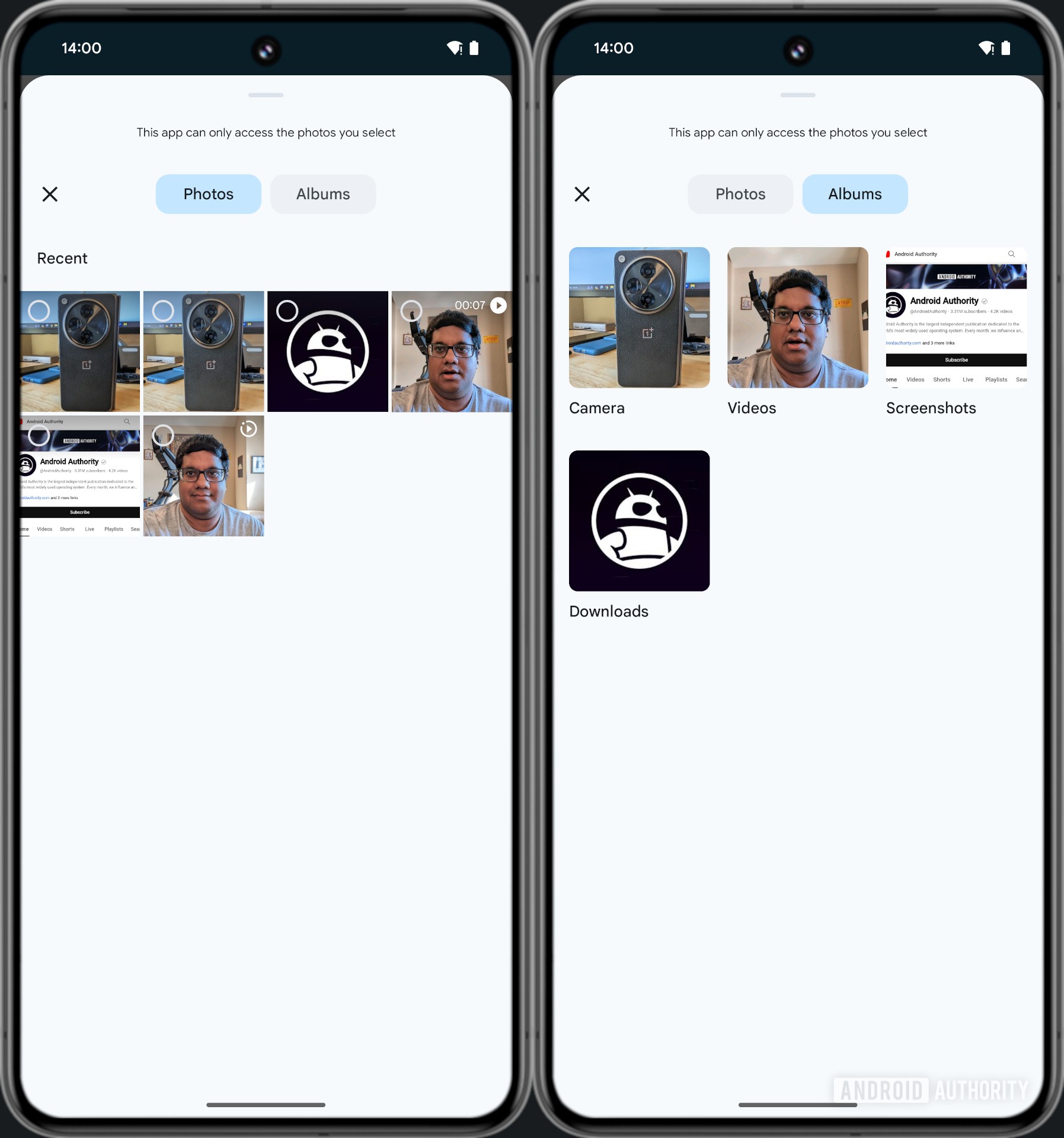
What Android’s Photo Picker looks like without cloud media support
As you can see, the Photo Picker has two tabs: “Photos” and “Albums”. The “Photos” tab shows you all your photos, videos, or both in reverse chronological order. The “Albums” tab shows you media items from the Camera, Videos, Screenshots, Downloads, and Favorites albums on your device. If you store all your media files locally on your device, then the Photo Picker will show every media file you could possibly want to share. However, if you store most of your photos and videos on Google Photos, then Android’s Photo Picker will be missing a lot of items.
Google knew this would be a problem for many users, which is why they designed Android’s Photo Picker to support selecting items from cloud media providers from the get-go. Cloud media providers don’t automatically appear in Android’s Photo Picker, though; they need to implement an API that gives apps read-only access to media files stored in the cloud. This is similar to how the older system file picker works with cloud media providers, but since that experience has existed for years now, many apps have had time to integrate with it.
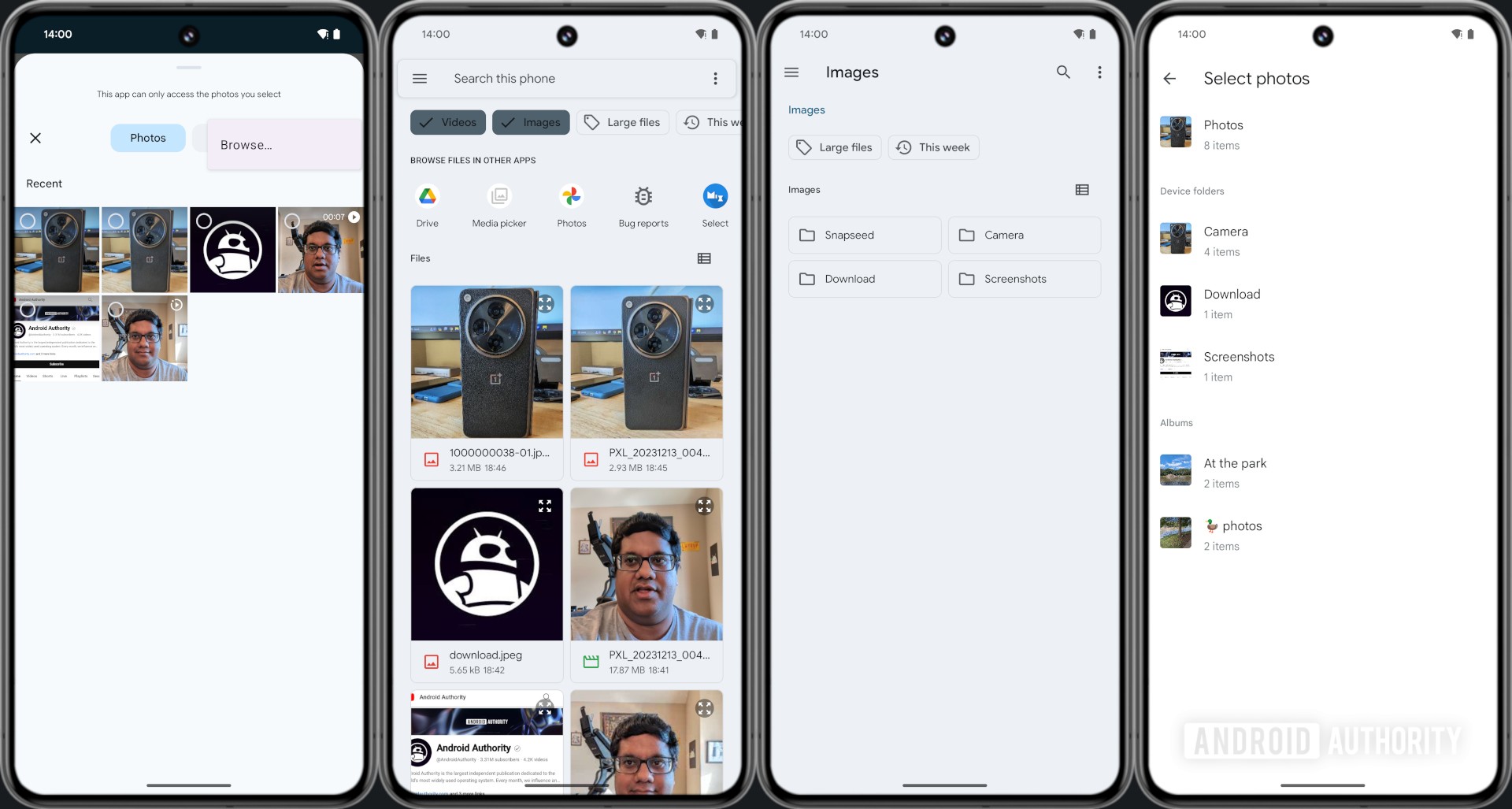
Android’s system file picker, which the Photo Picker supplants for picking media files, has a more dated UI but offers broader access to files from local and cloud storage providers. It can be invoked directly or indirectly (leftmost image, tapping the “browse” button).
The same can’t be said for the new Photo Picker, which still hasn’t had a single cloud media provider integrated with it. This is even though back at I/O 2022, a year and a half ago, Google said that cloud media providers like Google Photos will be supported in an upcoming update. This is finally coming to fruition soon, though, since recent versions of the Google Photos app have added full support for Android’s Photo Picker.
After activating this feature, a new “Cloud media app” page appears under Settings > Apps. Here, we were able to activate Google Photos as a cloud media provider for Android’s Photo Picker. Enabling this feature also opened up a new “Google Photos access” option in the settings page for the Google Photos app. This option leads to an in-app “Photo picker” page that lets you decide whether to grant the Photo Picker access to the photos and videos you’ve stored on Google Photos.
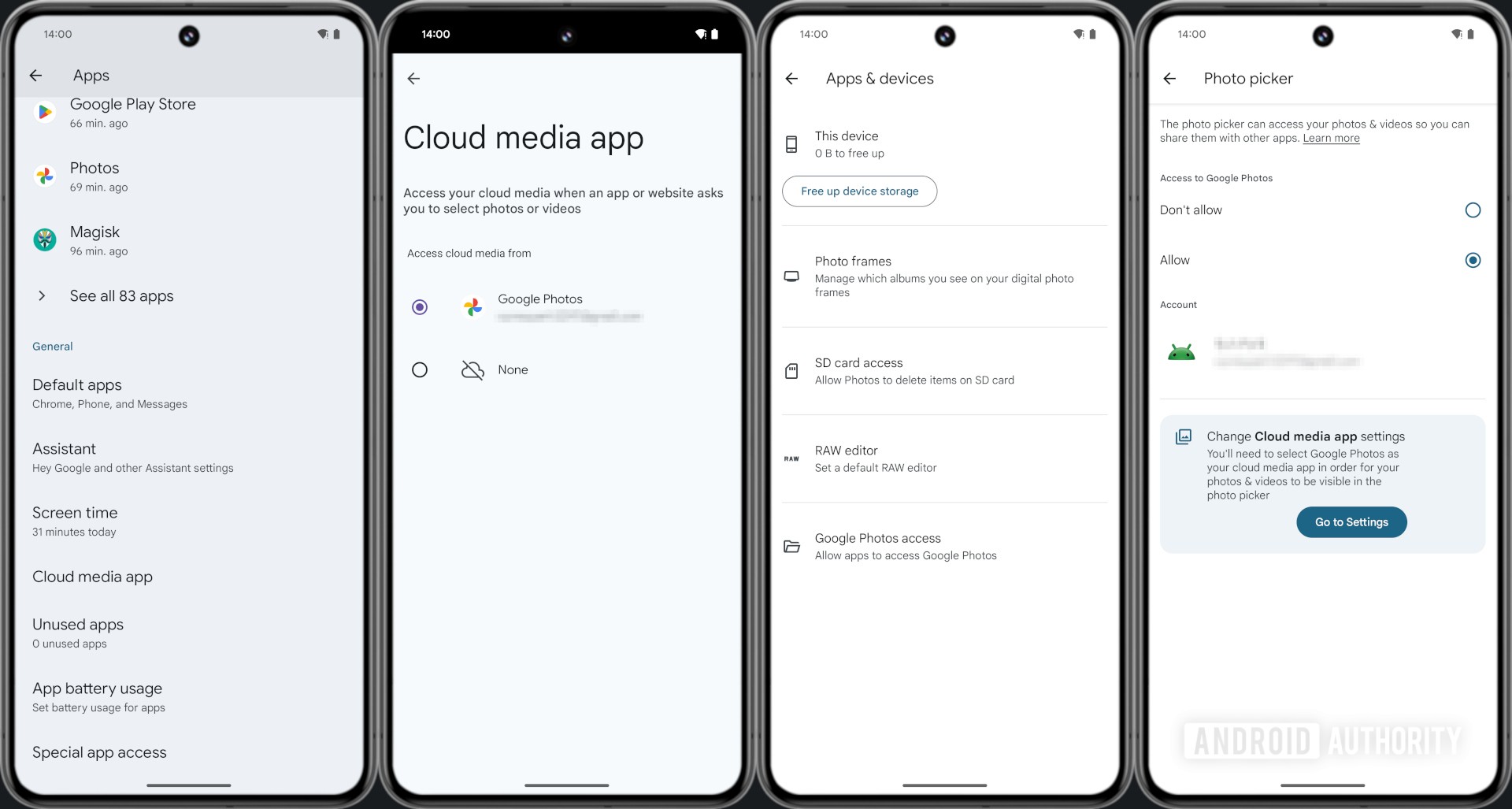
The various ways you can set Google Photos as the cloud media provider for Android’s Photo Picker.
With Google Photos now set as the cloud media provider, the Photo Picker is able to pull in the photos and videos I backed up to the cloud. This greatly expands the number of media files I can share with an app, as shown below.
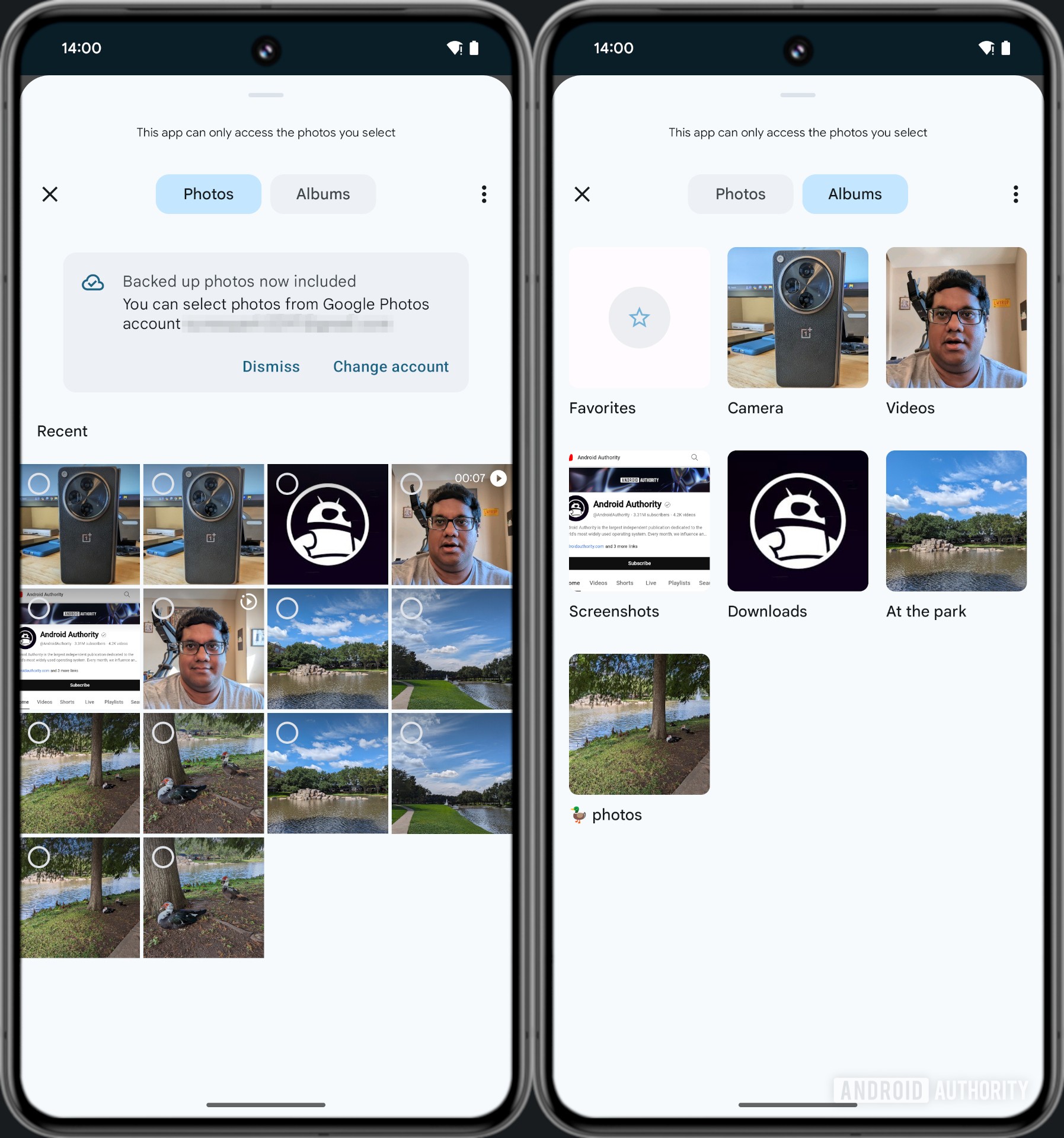
A look at Android’s Photo Picker with cloud media support.
Even with this expansion, however, the Photo Picker still has some limitations. First, the “Albums” tab still doesn’t show local albums created by apps like Snapseed, so you’ll need to find media files saved in those albums by scrolling through the “Photos” tab. Second, cloud media items aren’t shown when the Photo Picker is invoked through the permissions dialog, which is part of a new feature introduced in Android 14 that lets users grant apps partial access to photos and videos. That means cloud media items are only when the Photo Picker is invoked by an app. Fortunately, this applies even when an app indirectly invokes the Photo Picker, as is the case in apps like Google Chat and Google Keep following a recent Google Play System Update.
Hopefully, Google rolls out this feature soon to users since the lack of cloud media support in the Photo Picker is partly why many developers aren’t utilizing it in their apps yet. After Google Photos integrates with the Photo Picker, hopefully, other cloud media providers like Microsoft OneDrive follow suit.
Thank you for being part of our community. Read our Comment Policy before posting.